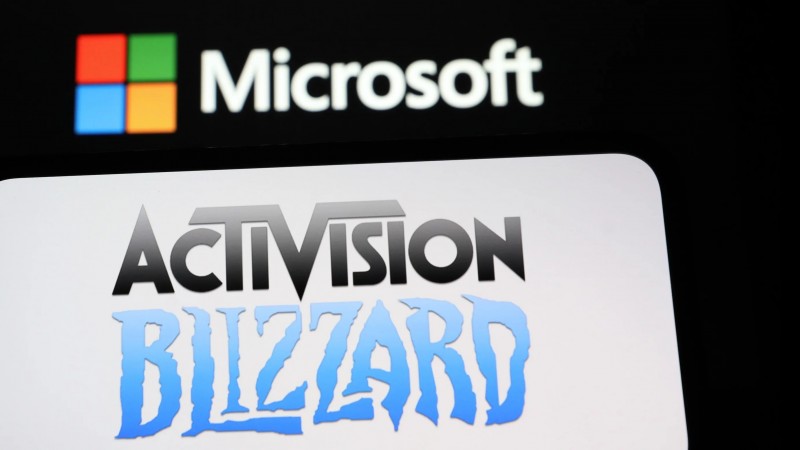
New Delhi: In a surprising turn of events, the United States Federal Trade Commission (FTC) has filed a request with the court to temporarily halt Microsoft's proposed acquisition of Activision, one of the world's largest video game companies. The move comes amid concerns over potential antitrust issues and the need for further scrutiny of the deal's implications on the gaming industry.
Microsoft's acquisition of Activision, announced earlier this year, sent shockwaves through the gaming community. The deal, valued at a staggering $68.7 billion, would combine two major players in the industry and significantly reshape the landscape of video game development and distribution.
Also read:PM Modi Becomes First Indian PM to Receive France's Highest Civilian Award
The FTC's request for a temporary halt to the acquisition reflects the commission's commitment to ensuring fair competition and protecting consumers' interests. The regulatory body has expressed concerns that the merger could lead to a concentration of power in the gaming market, potentially limiting consumer choice and stifling innovation.
FTC Chairperson, Lina Khan, stated, "We believe it is essential to thoroughly examine the potential implications of this acquisition on competition within the gaming industry. Our goal is to safeguard fair market dynamics and promote a level playing field for all participants."
The request for a temporary halt will allow the FTC to conduct a more detailed investigation into the potential antitrust implications of the acquisition. The commission will assess factors such as market concentration, potential barriers to entry for new competitors, and the impact on consumer prices and choice.
Also read:Alphabet's Shares Skyrocket Following International Expansion of AI Chatbot
Microsoft, a tech giant known for its dominance in the software and gaming industries, had hoped that the acquisition of Activision would further strengthen its position in the gaming market. The company's Xbox gaming console and its Game Pass subscription service have gained significant popularity in recent years.
Activision, on the other hand, is renowned for its blockbuster game franchises such as "Call of Duty," "World of Warcraft," and "Candy Crush Saga." The acquisition would have granted Microsoft access to a vast library of intellectual property and a massive user base.
The temporary halt sought by the FTC does not necessarily mean that the acquisition will be permanently blocked. Instead, it provides an opportunity for a more thorough review of the deal's potential impact on competition and consumer welfare.
Also read:El Nino is threatening rice crops after the Ukraine War disrupted grain supplies
Industry experts have mixed opinions on the matter. Some argue that the acquisition could enhance Microsoft's ability to compete with other major players in the gaming industry, such as Sony and Nintendo. They believe that the deal could result in better games, more innovation, and improved services for gamers worldwide.
However, critics express concerns that the acquisition could create a duopoly in the gaming market, limiting competition and potentially leading to higher prices for consumers. They argue that the merger may deter new entrants and harm smaller game developers who rely on independent publishing and distribution channels.
Also read:The Taj Mahal: A Masterpiece that Transforms with Time `
The temporary halt to the acquisition also raises questions about the future of other major deals in the gaming industry. Companies such as Sony, Electronic Arts, and Tencent have been actively acquiring studios and game developers in recent years, leading to consolidation and increased market concentration.
As the court reviews the FTC's request for a temporary halt, both Microsoft and Activision will need to provide detailed justifications for the deal and address the concerns raised by the regulatory body. The outcome of the court's decision and the subsequent investigation will have significant implications for the gaming industry.
In conclusion, the FTC's request to temporarily halt Microsoft's acquisition of Activision underscores the need for further examination of potential antitrust issues in the gaming market. The move reflects the regulatory body's commitment to safeguarding fair competition and protecting consumer interests. As the court reviews the request, the gaming industry and its stakeholders eagerly await the outcome, which could shape the future landscape of video game development and distribution.